Adventist World Radio, Austria: Four Recordings, 2009-2021
/Many thanks to hb9gce for these recordings of Adventist World Radio from 2009 through 2021.

Many thanks to hb9gce for these recordings of Adventist World Radio from 2009 through 2021.

Many thanks to SRAA contributor, Dan Greenall, who shares the following recordings and notes:
Broadcaster: USSR shortwave broadcasters 1970's
Frequency: various
Reception location: Ancaster, Ontario, Canada
Receiver and antenna: Hallicrafters S-52 using a longwire antenna
Notes: Around 1970, there were other stations in the Soviet Union (USSR) that could be found on the shortwaves besides Radio Moscow. Programming on most of these outlets was all in Russian.
Radiostansiya Rodina (Homeland) is heard here with their interval signal and identification in Russian sometime in 1971. Shortwave frequency was likely 7100 kHz.
Radiostansiya Atlantika broadcast to the Soviet fishing fleet circa 1970.
Radiostansiya Mayak (lighthouse) could also be heard on various frequencies during the early 1970's.
Radio Station Peace and Progress, the Voice of Soviet Public Opinion, had some English language programs.
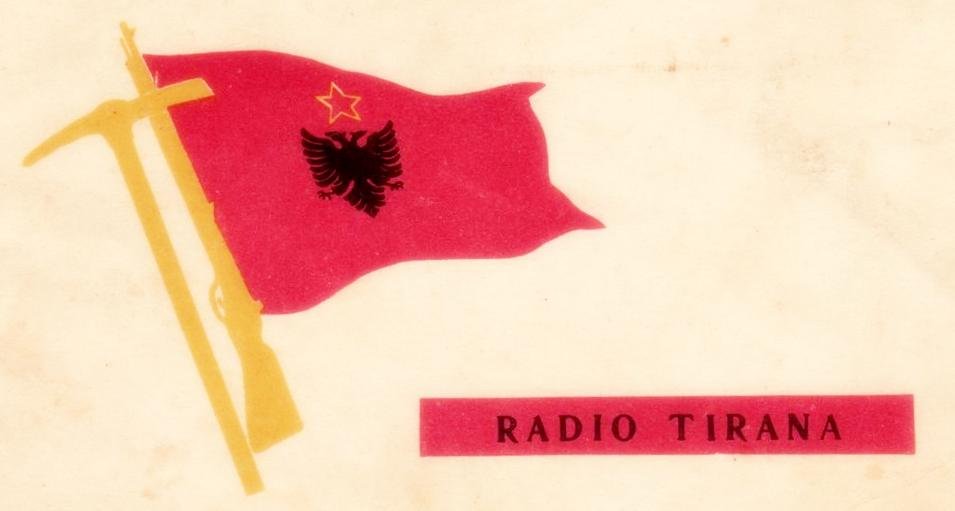
Many thanks to hb9gce for these recordings of Radio Tirana from 1989 through 2013.

Many thanks to SRAA contributor, Gert Irmler, who shares the following recording and notes:
Broadcaster: Radio Douala, Cameroon
Date of recording: March 21, 1983
Starting time: 04:24 UTC
Frequency: 4.795 MHz
Reception location: Schwäbisch Gmünd, BW - Germany
Receiver and antenna: Grundig Satellit 2000, 30m longwire
Notes: Px: F/E, s/on, IS, IDs, NA, mx
SINPO: 34232
Provincial station in Cameroon's tropical coastal region 'Littoral/Douala', some interruptions after sign on, then sudden termination of signal.


Many thanks to SRAA contributor, Dan Greenall, who shares the following recording and notes:
Broadcaster: Trans World Radio Bonaire "The DX Special" circa 1974
Frequency: 11.815 MHz
Reception location: Ancaster, Ontario, Canada
Receiver and antenna: Realistic DX-150A with a long wire antenna
Notes: Trans World Radio from the island of Bonaire in the Netherlands Antilles broadcast on shortwave from 1964 to 1993. They used to put a strong signal into my receiver location in southern Ontario, Canada. The station also used to air a program called "The DX Special", hosted by Al Stewart, which appears to have been produced in their Monte Carlo studio. I recently came across a short recording I made circa 1974, where I happened to catch the end of one of these programs.

Many thanks to SRAA contributor, Dan Greenall, who shares the following recording and notes:
Notes: Radio Rabaul on the island of New Britain, PNG, was a rare visitor to my radio shack in 1971. I was able to make this brief recording (along with one of Radio Bougainville submitted separately) using an open mike in front of the speaker on the Hallicrafters S-52.
I posted my first recording of Radio Rabaul in April 2022. Recently, I discovered this second short recording I likely made on that same day, possibly a little later as the signal was beginning to fade. The language was likely Pidgin however you can clearly hear them give out their frequency of "3 point 3 8 5" around the 24 second mark. A 3-tone chime on the hour and station ID are given at the end of the recording.
Broadcaster: Radio Rabaul
Date of recording: 10/21/1971
Frequency: 3.385 MHz
Reception location: Ancaster, Ontario, Canada
Receiver and antenna: Hallicrafters S-52 using a longwire antenna

VOA SiTE B Curtain Antenna Array Near Greenville, North Carolina
Many thanks to SRAA contributor, Bob Purse, who shares the following recording and notes from his excellent website Inches Per Second:
Here are two more [shortwave recordings], which I recently came across. These are both segments of episodes of "The Voice of America Jazz Hour", circa 1980, each of which features live recordings of Jazz performers in concert in Europe. I suspect that the recordings shared within this programming might be quite rare, if in fact these tapes were made for VOA and not generally broadcast or released elsewhere. However, it could also be that these performances are actually from released albums, or at least that these performances were later released. By some weird coincidence, these two segments are both 35-36 minutes, even though the show original ran an hour.
The styles of jazz performance heard here are not at all similar the styles within jazz that 1I prefer, and I therefore know nothing about these performers nor have I tried to research them or these performances. But perhaps some of you out there have a taste for this, and I don't ever want to limit this site to things that I want to hear. If anyone has information to share about these recordings, by all means, do, and I'll pass it along.

Many thanks to SRAA contributor, Dan Greenall, who shares the following recording and notes:
Broadcaster: Radio Clube de Mocambique 1973
Date of recording: 1970
Frequency: 4.855 MHz
Recpotion location: Ancaster, Ontario, Canada
Receiver and antenna: Realistic DX-150A with a long wire antenna
Mode: AM
Notes: An infrequent visitor to my listening post in the early 1970's, Radio Clube in Lourenco Marques used a modest 25 kw of power but could occasionally be heard here in southern, Ontario, Canada on 4855 kHz around 0400 or 0500 hours UTC. Their signal had to travel over 13,000 km to reach my receiver and had to fight through the constant static crashes typically found on the 60 metre shortwave tropical band. They commonly aired programs of pop music, and in this brief recording, circa 1973, you will first hear the tune of "In the Summertime." It is followed by the LM chime and identification in Portuguese beginning "Aqui Portugal Mocambique..."

Many thanks to SRAA contributor, Paul Walker, who shares the following recordings of Wetterdienst Wetterfunksender made in McGrath, Alaska on November 4, 2023:

Many thanks to SRAA contributor, Anthony Messina, who shares the following recordings and notes:
Broadcaster: KCBS Pyongyang
Date of recording:Various (2022-2023)
Frequency: Various frequencies
Reception location: Various locations
Receiver and antenna: KiwiSDR
Mode: AM
Notes: This is a collection of recent recordings I made of DPRK SW radio stations.
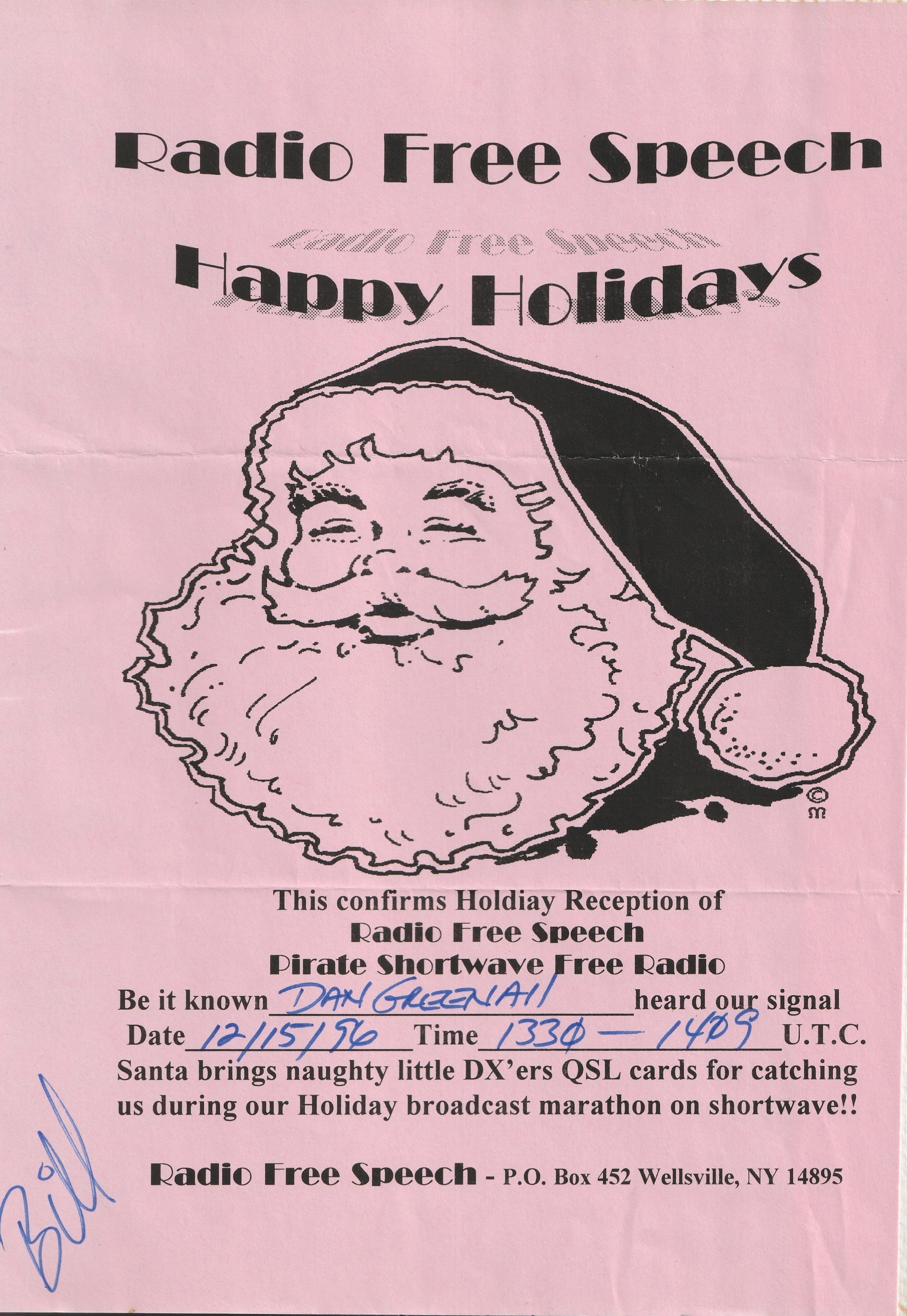
Many thanks to SRAA contributor, Dan Greenall, who shares the following recording and notes:
Broadcaster: Radio Free Speech (pirate)
Date of recording: December 15, 1996
Starting time: 1330 UTC
Frequency: 6.955 MHz
Reception location: Thamesford, Ontario, Canada
Receiver and antenna: Panasonic RF-3100 and longwire antenna
Notes: Radio Free Speech was a shortwave pirate radio station heard regularly in the late 1990's here in Southern Ontario, Canada. Here are a few blended airchecks from their Christmas Special broadcast on December 15, 1996 around 1330 hours UTC. This was on 6955 kHz and the announcer was "Bill O. Rights."

Many thanks to SRAA contributor, Angelo Prieto, who shares the following recording and notes:
Broadcaster: Radio Saudi International
Date of recording: September 04, 2023
Starting time: 9:00 UTC
Frequency: 15.120MHz
Reception location: Miami, Florida, U.S.A.
Receiver and antenna: Tecsun PL-310ET, homemade copper beam antenna
Notes: This was the Islamic Call to Prayer (Adhan), This was the Bengali service of Radio Saudi International, Bengali is mainly spoken in North Eastern India and so that's where I pointed the antenna instead of pointing directly as Saudi Arabia.

Many thanks to SRAA contributor, Gert Irmler, who shares the following recording and notes:
Broadcaster: R Chinchaycocha, Junín / PRU 4860 kHz
Date of recording: July 05, 1978
Starting time: 04:42 UTC
Frequency: 4.860 MHz
Reception location: Schwäbisch Gmünd, BW - Germany
Receiver and antenna: Grundig Satellit 2000, 30m longwire
Notes:
OBZ4Z R Chinchaycocha, Junín, Perú
QRG: 4860 kHz
QTH: Schwäbisch Gmünd / Southern Germany
Rec: 5th July 1978 / 04:42 - ca. 07:15 UTC (GMT) (!)
Rx, Ant: Grundig Satellit 2000 - 30m longwire
Px: S, anns, huaynos, ID
SINPO: 34322
Remark: July 5th, 1978 was a very special day - great LA reception with smooth fade-out far beyond sunrise. Picaflor's spellbinding folk song 'María Alejandrina' caused goosebumps (especially from 3:33 in the MP3). Text goes as:
"María Alejandrina, what a beautiful woman's name you have.
Your name is kindness. Your noble heart ...
I would like them to change my bad life for good.
She isn't Carmen Rosa, nor Ana María,
nor is she Margarita, It's María Alejandrina ..."
ID at 14:58 in sound file ('desde Chinchaycocha'), the station's transmitting power in 1978 was 0.5 kW ...
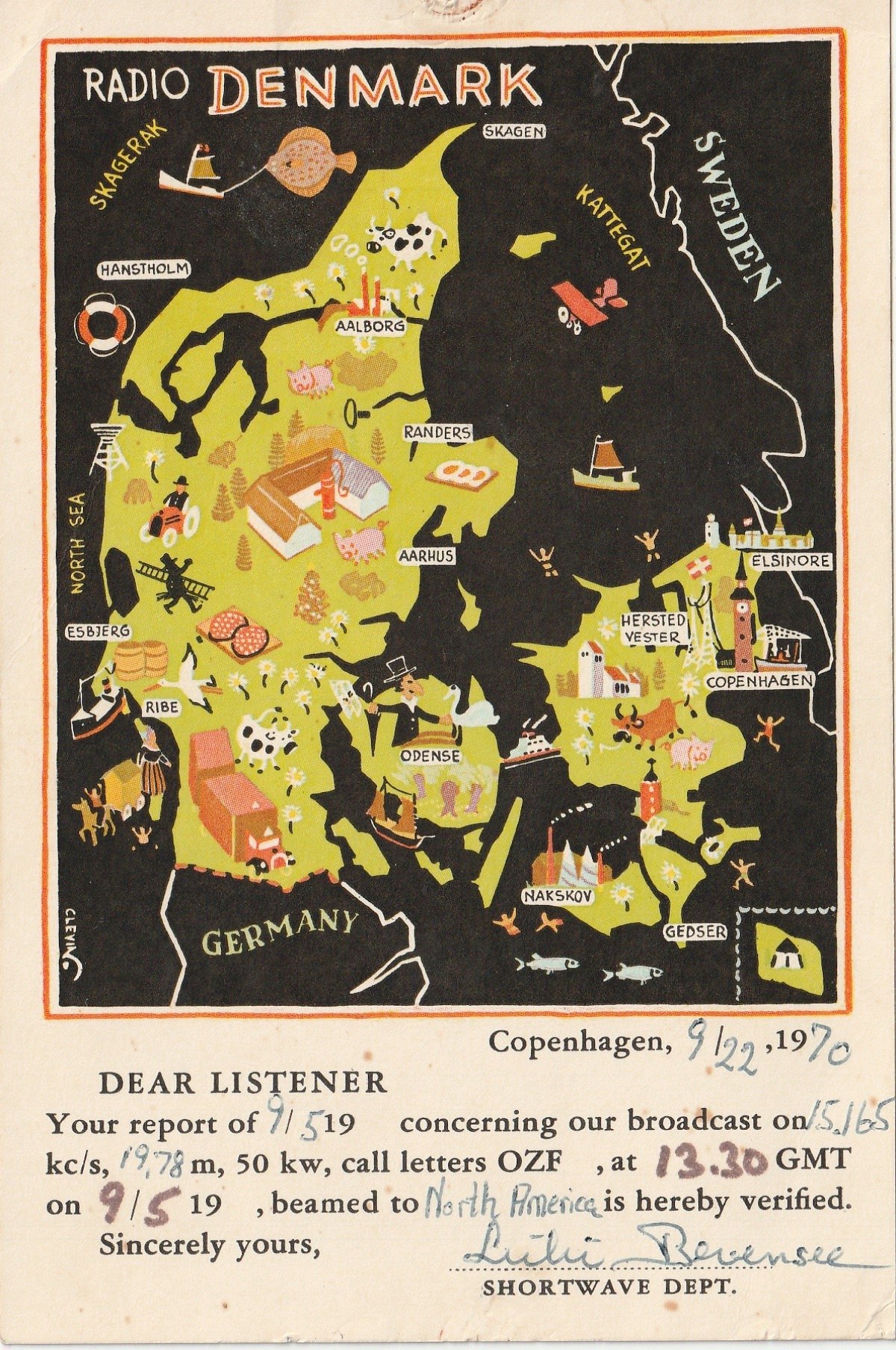
Many thanks to SRAA contributor, Dan Greenall who shares the following recording and notes:
Broadcaster: Radio Denmark
Date of recording: 1970
Frequency: 15.165 MHz
Reception location: Ancaster, Ontario, Canada
Receiver and antenna: Hallicrafters S-52 using a longwire antenna
Notes: Here is Radio Denmark on 15165 kHz shortwave as recorded in 1970. Their interval signal is heard followed by announcement in English, then identification in Danish. Sadly, for most North American listeners, all of their programming was also in Danish in 1970.

Photo by Annie Spratt on Unsplash
Many thanks to SRAA contributor, Bob Purse, who shares the following recording and notes from his excellent website Inches Per Second:
Next up, an hour long tape which is sort of peculiar. It starts off and ends up normally enough - just a couple of guys playing guitars - some instrumental duets, some songs with vocals.
20 minutes into it, though, a man starts speaking, and introduces a recording of a shortwave broadcast of a speech by the first lady of Guatemala, thanking Ham Radio operators who assisted the country during the then-recent (1976) earthquake. Then follows that shortwave recording, and then the man comes back and shares that he will be providing some recordings of his recent performance with another guitarist.
The earlier segment does not appear to be a "live" recording, and at one point, an organist (with one of those beat-box built in drums) joins them. But after the "thank you speech", it seems that we're hearing a club or bar performance. There's no applause, but there is talking in the background.
I guess what I find peculiar about it is that the sender put the "interesting" short wave broadcast right in the middle of the tape, in between highlights of his performance. That strikes me as a weird choice.

The Shepparton transmitter site of ABC/Radio Australia
Many thanks to SRAA contributor, Bob Purse, who shares the following recording and notes from his excellent website Inches Per Second:
For those of you who like it, here are two more entries in the series of Australian Shortwave [Note: Recording 1 was published on the SRAA last week], which I've been parceling out from time to time since not long after this blog began. I'm fairly certain the person who recorded these programs lived somewhere in North America, because all of the shows (up until this posting) were from episodes directed at that continent. But additionally, I wonder now if the person lived on the west coast of North America, because he or she made an effort (on the same tape as a show from 9/5/74), to capture Australia Shortwave during a program broadcast towards Asia and the South Pacific. The quality of the connection during that portion is, as you'll hear, quite poor, but it did come in, at a level and quality that I would guess it wouldn't have been received in the eastern half of the continent.
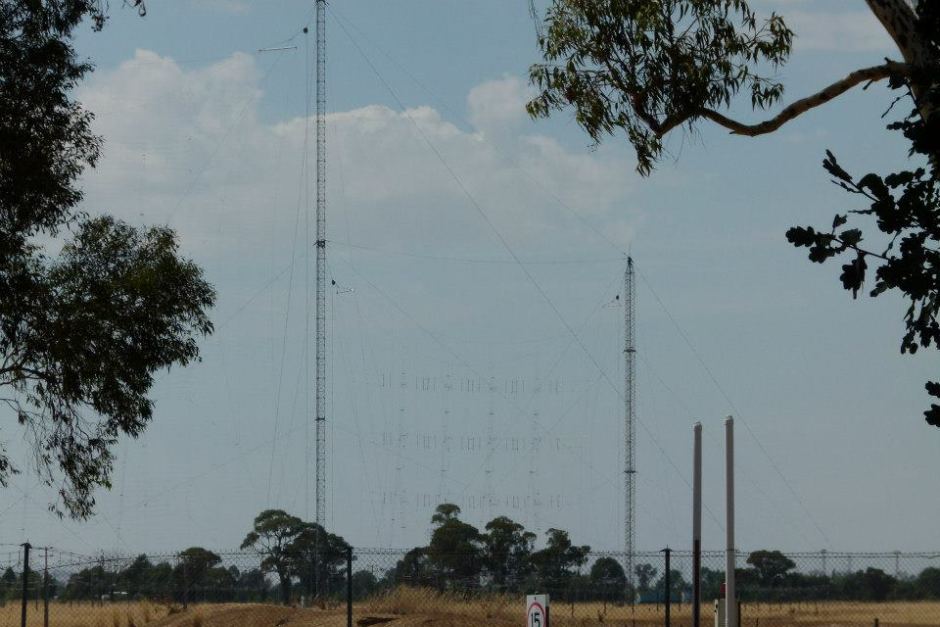
Radio Australia’s Shepparton TRansmitting Station
Many thanks to SRAA contributor, Bob Purse, who shares the following recording and notes from his excellent website Inches Per Second:
For those of you who like it, here are two more entries in the series of Australian Shortwave [Note: Recording 2 will be published on the SRAA next week], which I've been parceling out from time to time since not long after this blog began. I'm fairly certain the person who recorded these programs lived somewhere in North America, because all of the shows (up until this posting) were from episodes directed at that continent. But additionally, I wonder now if the person lived on the west coast of North America, because he or she made an effort (on the same tape as a show from 9/5/74), to capture Australia Shortwave during a program broadcast towards Asia and the South Pacific. The quality of the connection during that portion is, as you'll hear, quite poor, but it did come in, at a level and quality that I would guess it wouldn't have been received in the eastern half of the continent.
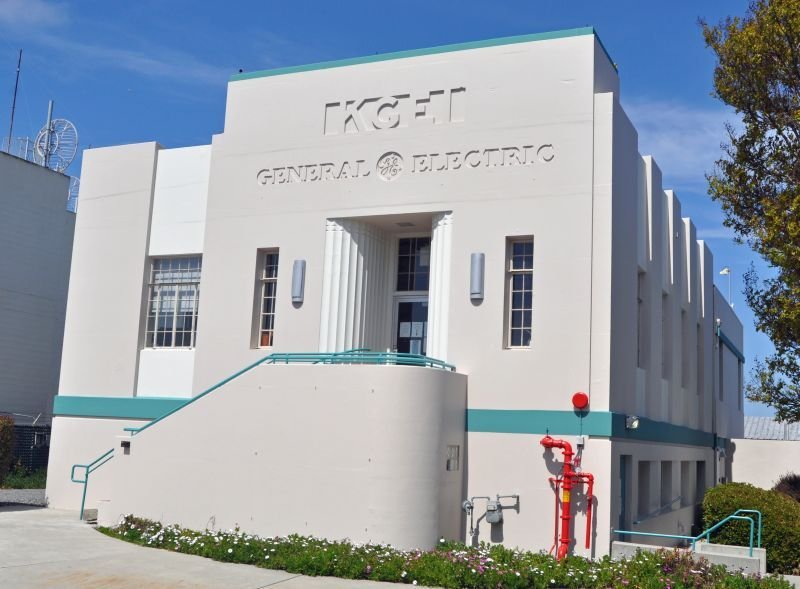
Many thanks to SRAA contributor, Antonio Ribeiro da Motta, who shares the following recording and notes:
Broadcaster: KGEI San Francisco CA USA
Date of recording: April 01, 1978
Starting time: 2030 UTC
Frequency: 9615 kHz
Recpotion location: São José dos Campos SP Brazil
Receiver and antenna: Philco Transglobe B481 Longwire 22 mt
Notes: Recording of the program Departiendo con La Juventud presented by Mario Barahona (in memorian). There are 2 programs that were merged: days 01 and 02/04/1978.

Many thanks to SRAA contributor, Dan Greenall who shares the following recording and notes:
Reception location: Ancaster, Ontario, Canada
Receiver and antenna: Hallicrafters S-52 using a longwire antenna
Notes: Prior to July 1, 1971, time and standard frequency station WWV in Fort Collins, Colorado was giving ID's in Morse code as well as voice every 5 minutes. They were best heard here in southern Ontario, Canada on 10 and 15 MHz.

Radio Canada International: Sackville, New Brunswick Transmitting Station
Many thanks to SRAA contributor, Tom Laskowski, who shares the following recording and notes:
BROADCASTER: Radio Canada International
DATE OF RECORDING: August 22, 1982
STARTING TIME: 2107 UTC
FREQUENCY: 15.325 MHz
RX LOCATION: South Bend, Indiana
RECEIVER AND ANTENNA: Realistic DX-302
NOTES:
Here are two more episodes from my collection of recordings of Shortwave Listener's Digest from Radio Canada International, this time from August 22, 1982 and September 04, 1982. Part one program highlights are: a continuation of the discussion of undersea cables, Glenn Hauser's DX Tips part one, a look at clocks for use in SWLing and more DX Tips. Part two program highlights are: a short comment regarding ANARC 1982, Mailbag questions, ANARC 1982 recap with an interview with David Meisel and an item on the New World Information Order, Glenn Hauser's DX Tips. The recording from 9/4/82 is poor due to adjacent-channel QRM.
The Shortwave Radio Audio Archive (SRAA) is a collection of shortwave radio recordings that you can download or listen to as a podcast. The collection grows every day and includes both historic recordings and current recordings from the shortwave radio spectrum.
The goal of this site is for shortwave radio enthusiast to have a place to store, archive and share their radio recordings with the world.
Click here to learn how to contribute and archive recordings.
You can subscribe to the archive with any podcasting application by subscribing to our RSS feed. Simply right click and copy this RSS feed url, then paste it into your podcasting application's subscribe box.
